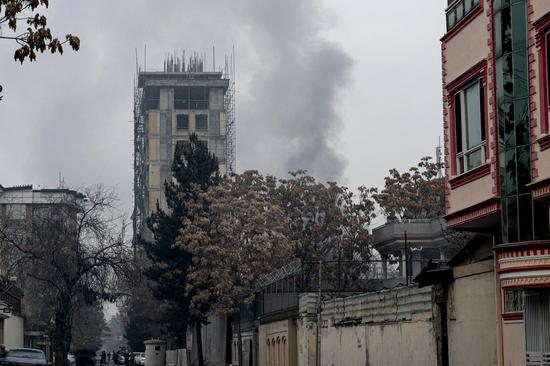Subvariant has no marked increase in pathogenicity, health officials say
The BQ.1 subvariant of Omicron has emerged on the mainland but no marked increase in its pathogenicity has been reported, and reinfection with COVID-19 does not increase the risk of severe illness, health officials and experts said.
The mainland has reported 49 cases of BQ.1 or its sublineages in nine provincial-level regions. However, no widespread transmission has been reported and no infected patients have been found to suffer more severe symptoms compared with patients who've contracted other variants.
"Currently, the dominant strains in circulation in China remain BA.5.2 and BF.7, and both are sublineages of BA.5," the Chinese Center for Disease Control and Prevention said on Tuesday.
The center made the statement in response to online rumors that BQ.1 and its offshoots were wreaking havoc in Japan with their high transmissibility and high death rates.
BQ.1, which also belongs to the BA.5 family, was first detected in Nigerian patients in June and began spreading in September in Europe and the United States, and gradually rose to become the dominant variant. Since mid-October, Asian countries, including Japan and Singapore, have been registering BQ.1 infections.
"While BQ.1 has drawn global attention, no country has ever reported an increase in its pathogenicity, and no report has pointed to an increase in rates of hospitalization and fatality," said the center. "A recent animal study in Japan suggests that the pathogenicity of BQ.1.1(a lineage of BQ.1) is likely the same as or even lower than that of BA.5."
The center said that China will continue to ramp up surveillance of Omicron variants and promptly evaluate transmissibility, immunity evasiveness and virulence of new strains.
Because the virus is constantly mutating, the National Health Commission said on Tuesday that recovered COVID-19 patients are not immune to repeat infections.
"However, data from overseas has shown that the chance of getting infected with Omicron again within three to six months after the first bout is very low," the commission said.
In addition, the commission said there is no definitive evidence supporting the theory that repeat infections can induce more serious clinical symptoms.
"Based on observation of real-world cases, the proportion of patients who have suffered more serious health issues during a second infection is very low," the commission said. "The pathogenicity of Omicron has weakened, and the rate of severe cases is very low irrespective of being a first infection or repeat infection."
Zhong Nanshan, a prominent respiratory diseases expert, said during an interview last week that data from overseas has shown about 78 percent of patients who have recovered from Omicron infection won't catch the virus again for a lengthy period of time.


















































 京公网安备 11010202009201号
京公网安备 11010202009201号